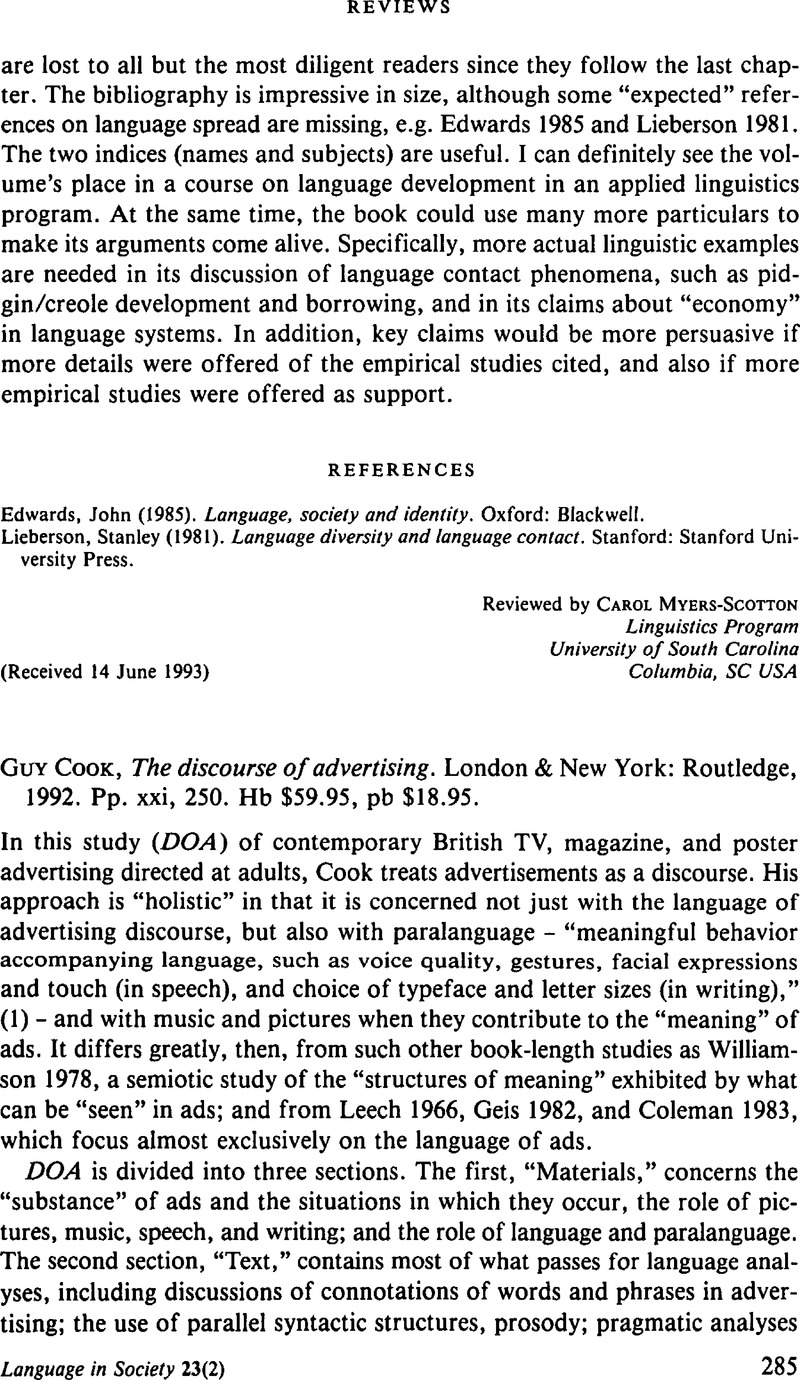No CrossRef data available.
Article contents
Guy Cook, The discoure of advertising. London & New York: Routledge, 1992. Pp. xxi, 250. Hb $59.95, pb $18.95.
Published online by Cambridge University Press: 19 February 2009
Abstract
An abstract is not available for this content so a preview has been provided. Please use the Get access link above for information on how to access this content.

- Type
- Reviews
- Information
- Copyright
- Copyright © Cambridge University Press 1994
References
REFERENCES
Brown, Penelope, & Levinson, Stephen (1978). Universals in language: Politeness phenomena. In Goody, Esther N. (ed.), Questions and politeness, Strategies in social interaction, 56–324. Cambridge & New York: Cambridge University Press. [Revised as Politeness, Cambridge University Press, 1987.]Google Scholar
Coleman, Linda K. (1983). A linguistic analysis of television commercials. Ph.D. dissertation, University of Californina, Berkeley.Google Scholar
Leech, Geoffrey N. (1966). English in advertising: A linguistic study of advertising in Great Britain. London: Longman.Google Scholar


